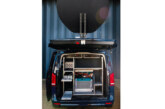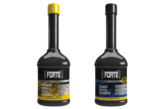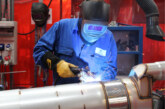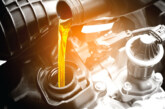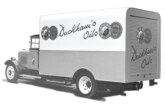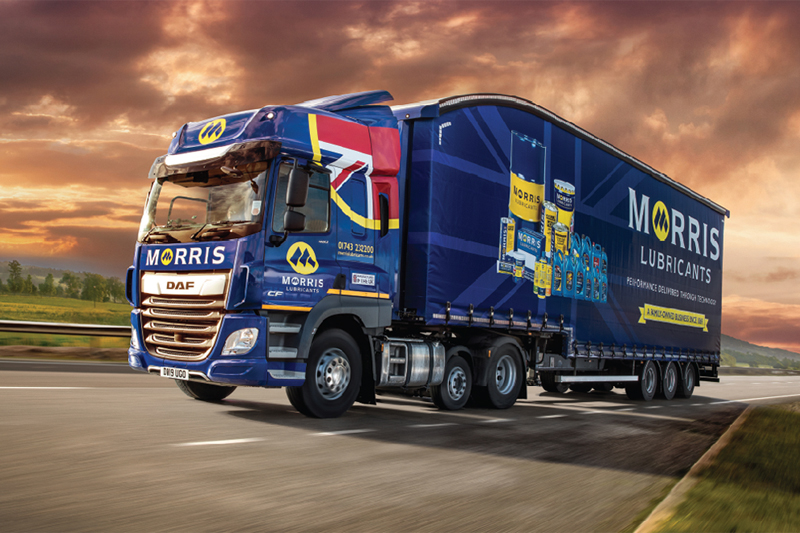
Morris Lubricants discusses the future of heavy duty diesel engine oils in the face of Euro VII regulations.
Having produced quality oils and lubricants for over 150 years, Morris Lubricants know how important it is to be at the forefront of innovation. Using their expert laboratory and technical teams many years of experience they are challenged with meeting the continuing need from major OEMs to bring new products to the market by researching new formulations and keeping up-to-date with industry developments.
It’s safe to say that heavy duty diesel engines have got Euro VI on the ropes when it comes to compliance, but Euro VII will be a whole new challenge, especially for lubricants. Moving from Euro V to Euro VI yielded a wealth of hardware updates, including: higher fuel injection pressures, smaller displacement, scavenging loop improvements, better aftertreatment device efficiency, to name but a few. Alongside these changes, the lubricant specifications have also had to keep pace, especially with the critical protection of after-treatment devices, such as diesel oxidation catalysts, selective catalytic reduction systems (AdBlue) and diesel particulate filters. Without the correct chemistry all of these devices suffer, with the potential for big repair bills. So, as we move closer to Euro VII (pitched around 2024/2025) developments are well under way to meet a new set of demands.
There’s no doubt that engine downsizing, in terms of the number of cylinders employed, will continue. The eight-cylinder behemoths have already been moved down to six cylinders in numerous cases and with the adoption of variable geometry turbochargers, to give tailored boost depending on demand, have helped to maintain power outputs. There will be a further culling of cylinders, with four or five cylinders being used. But this is just the start.
What does the future look like?
Variable valve timing and compression ratios, technology employed in the passenger car market, will be adopted, ensuring maximum fuel efficiency under a wide range of loads and operating conditions. Different construction materials will come into play, such as compact graphite iron (provides increased strength with reduced weight) and thermal spray liner coatings to reduce energy losses due to friction.
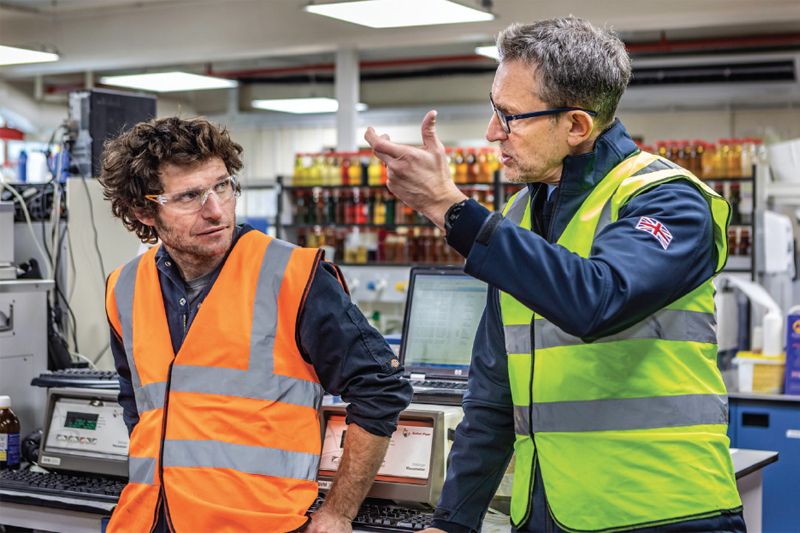
In order to keep pace with hardware changes, lubricant technology has also needed to evolve.
Improvements in fuel efficiency can be made by using engine oils that produce thinner oil films in the bearings and the ring/liner area. Thinner oil films result in less drag and, therefore, more useable energy goes to the wheels. In order to ensure that component integrity is not compromised, these thinner oil films are fortified with polymer chemistry to ensure there is no metal-to-metal contact. Polymers are essential when formulating 5W-30 and 0W-20 engine oils for this market. And the environmental benefit of fuel efficiency is reduced CO2, the target of Euro VII.
For internal combustion engines, fuel efficiency is essential and this will be the goal of original equipment manufacturers as they innovate in the direction of Euro VII compliance. The lubricant technology developed for this new generation of engine will not be backward compatible with previous designs. Oil film thickness will be down at the levels that passenger car engine oils now reside and heavy-duty diesel engines have to be capable of using these oils without accelerated wear and related issues taking place. Global lubricant specifications from ACEA and API have been developed for lubricants to suit these new engines and their emissions demands, but the OEMs are taking it further by tailoring these standard specifications and adding their own whistles and bells. The big players are already factory filling 5W-30s and requiring them for service fill. In the mean time they are developing 0W-20s that will enter the market over the next couple of years to drive down CO2 output even more. Mercedes-Benz, Volvo, MAN, DAF, Scania, and Iveco have specifications in draft that will become factory fill to start with.
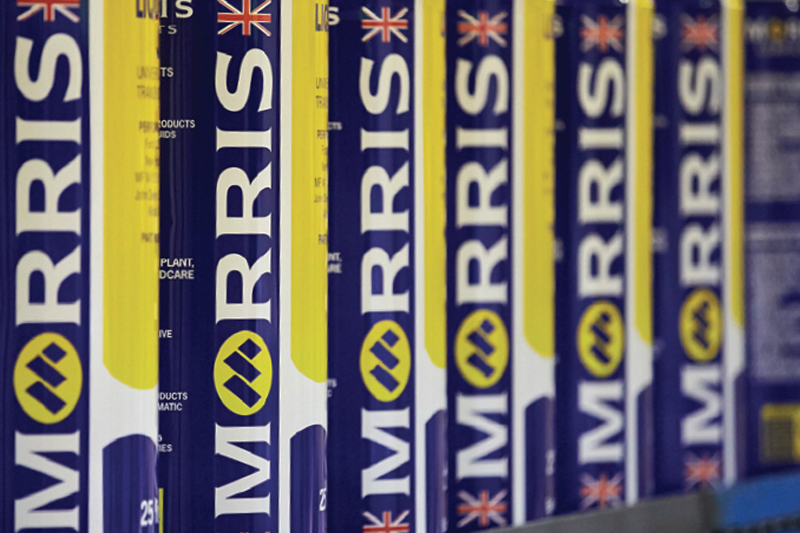
There’s definitely a busy time ahead for engineers, chemists and fleet operators, but there’s no doubt that heavy duty diesel still has a lot of future potential, with outright electrification a far distant glimmer.
What oil do I need?
To make sure you are putting the correct lubricants in your engine Morris Lubricants recommend that you use their online lubricant lookup tool. Where by entering the vehicles details, the system searches a database of Morris Lubricants products and selects the suitable products for the specific requirements of that vehicle.


